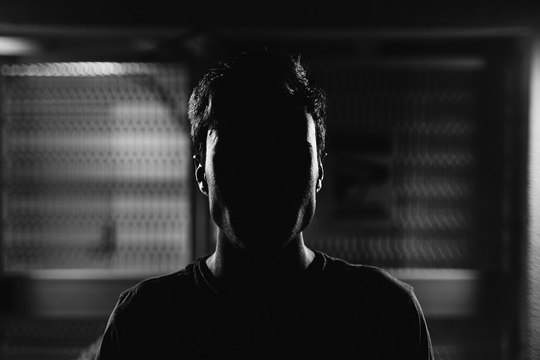Merriam-Webster defines a predator as a person who looks for other people in order to use, control, or harm them in some way.
Today, as I watched the Dr. Phil Show, the word predator kept racing through my mind. Woman after woman shared her ordeal of being raped or accosted by Bill Cosby. For me, I never imagined a predator would look like a comedian, a Jell-O pudding pusher, a doctor—the amusing family man from The Cosby Show. And his alleged predatory behavior has gone on for decades. Why has it taken so long to catch this man?
Because predators are sneaky individuals. They blend in. They don’t look like anything special, and we never know where they lurk. Sometimes they prowl right in front of us, but we can’t, or don’t want to see them. Perhaps, they have power.
Fifteen years ago, my twenty-year-old, special needs daughter got a second job, at a take-n-bake pizzeria in our small community. (This place has been out of business for years now.) Her forty-four-year-old boss immediately started complimenting Lindsey on her good looks and allowing her to work late into the night. He gave her free food, and free quarters so she could play the video games. He was grooming her. And he groomed us too.
The pizzeria owner was African American, and during every conversation he threw out statements that made us squirm.
“Your daughter is so pretty,” he’d say, telling me how much he enjoyed Lindsey working at his place. “I”m glad she likes to work the late shift with me.” He patted Lindsey on the shoulder. “I use to be a preacher, now I’m a businessman,” he said, explaining how he moved from Watts to Oregon. He slid his brown baseball cap off his bald head and scratched behind his ear. “People were prejudice in California. But they aren’t so prejudice here,” he added.
I shifted back and forth on my feet, fidgeting with my hands. Was the voice in my head uneasy from the fact that this man was paying way too much attention to my daughter? Or because he was black? Deep inside my heart, I knew his race wasn’t an issue for me, but still, I didn’t want to overreact. After all, he seemed like a decent guy. And he’d professed to have been a preacher. Besides, other business people in our town had been kind to my daughter, and so far, no one had ever crossed over the inappropriate line.
So I didn’t overreact. In fact, I didn’t react at all. But I tried to be vigilant. Obviously not vigilant enough, because one afternoon, unbeknownst to us, this man helped pack up the stuff in my daughter’s apartment and drove her and her belongings fourteen miles to his home—in the city next to ours. Tinfoil covered his windows and thick chains locked the wooden gates to the backyard. My beautiful girl willingly ran away with someone twenty-four years her senior.
We had worked hard to give our daughter some independence. She lived in her own apartment, had her own part-time job. Then two jobs. But even with these strides toward independence, I always thought there was an understanding that we meant she would be independent—to a certain extent. Because of her challenges, we would always be actively involved in her life.
The moment after Lindsey ran away, my husband and I drove to the police station, then to our attorney’s office. We heard the exact same words at both places. According to the state of Oregon, Lindsey was considered an adult.
“It’s not a crime to pick a bad partner,” the police said. “She’s of legal age, so there’s nothing we can do.” When I threatened to force Lindsey to come home, I was told, “If you do that, ma’am, you could be arrested for kidnapping.”
Kidnapping my own daughter?
For four and a half years, this man isolated Lindsey from us. She wore stained clothing, didn’t wash her hair, wrote us hate-mail, withdrew, and more times than not, neither he or my daughter would open the door when we came by to check on her. During the rare moments I did talk with my girl, I told her, “Call anytime. Day or night. We’ll come and get you.”
Lindsey looked at me confused and tilted her head. “I wanna be here, Mom,” she’d say. “I love him and he loves me.” Then she’d step back into the house with the tinfoil-covered windows and close the door.
Although Cosby allegedly drugged his victims to get what he wanted, in Lindsey’s case, her abuser took advantage of her challenges by planting thoughts and words in her head, alienating our daughter from us. He had so much control, so much power over her, she told us over and over, “I don’t wanna leave. You can’t make me.”
Ten years ago, Lindsey came home. The real story is this man finally set her free. He tired of my daughter and her developmental delays. Otherwise, the sad story is, I don’t know if Lindsey would have ever left on her own.
So what did we learn?
1. Predatory people do not have “Predator” tattooed on their foreheads.
They look like anybody else. They are not uglier or handsomer than any other person. They could be average or rich or poor. They could be tall or short or medium height. They could be anyone. And although I do not want to walk around our world suspicious of everyone, I do want to be alert. Especially when it comes to my daughter.
2. Predators groom their victims.
Whether your child is special needs or typical, when someone new enters your life, be observant. And as women, maybe we trust too much. If someone pays too much attention to us, to our child, or another person we love, maybe we should be wary of his motives.
3. Listen to your gut. The little voice inside your head—that uncomfortableness is telling you something. It’s saying, “Something isn’t quite right.” Believe what your body is telling you. Don’t ignore it.
I wish I could go back in time and stop this predatory man in his tracks. But that isn’t possible. I’m sure Bill Cosby’s alleged victims feel the same way. It would be wonderful if no other person ever became a casualty of someone who preys on others.
I’m grateful Cosby’s alleged victims survived their ordeals—but I’m ever so grateful Lindsey survived hers, too. I don’t know about Cosby’s targets, but fortunately for us, Lindsey appears stronger than ever.
“I’ll never, ever run away ever again,” Lindsey says, trying to reassure me whenever I show concern. “I learned my lesson. He was a very bad man.” More importantly, I want to believe she has learned to trust her gut and to listen when it whispers, “Stranger danger.”

My first book will be coming out September 26, 2017. If you are interested in learning more about Loving Lindsey: Raising a Daughter with Special Needs, please click here.

